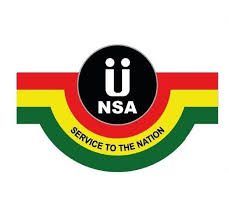A bombshell investigation by Ghanaian media outlet The Fourth Estate has exposed staggering irregularities within the National Service Scheme (NSS), revealing a scheme allegedly riddled with “ghost” personnel—including individuals listed as over 90 years old.
The findings, described as “bizarre” by investigators, have ignited calls for accountability and raised urgent questions about corruption in the state agency responsible for deploying graduates for national service.
According to the report, the NSS database for the 2022/2023 and 2023/2024 service years included names of individuals improbably aged in their 90s, supposedly fresh graduates from Ghanaian universities. One such entry, a 93-year-old identified as Nimatus, was listed as a graduate of the University for Development Studies (UDS) and deployed to a primary school in the Upper West Region. Another, 91-year-old Ruth Abdullah, was assigned to a district office. Investigators found no records of these individuals ever enrolling in or graduating from the institutions cited.
“This isn’t a clerical error—it’s a deliberate fraud,” asserted Sulemana Braimah, Executive Director of The Fourth Estate, during an interview on The KeyPoints last Saturday. “These names were inserted to divert allowances meant for legitimate service personnel.” The scheme, he argued, points to systemic corruption, with thousands of fake index numbers linked to universities like UDS and the University of Education, Winneba (UEW).
Officials from the implicated universities have denied involvement. A UDS representative stated flatly, “These are not our students. The index numbers and details do not match our records,” while UEW echoed similar disavowals.
The revelations have sparked public fury, with civil society groups demanding swift action. “This is an insult to Ghanaian taxpayers and genuine graduates struggling to secure placements,” said Kofi Asante, a spokesperson for anti-corruption group Transparency Watch. “Heads must roll.”
But the National Service Authority (NSA) has pushed back against the claims. NSA Executive Director Felix Gyamfi, in a phone interview with 3News, called Braimah’s revelations “not wholly accurate” and emphasized that an internal investigation is ongoing. “Culpability has not yet been established,” Gyamfi stated, without providing further details or timelines.
Critics argue the NSA’s response lacks urgency. National service personnel receive a monthly allowance of approximately GH¢715 (US$59), funded by taxpayers. With an estimated 100,000 personnel deployed annually, even a small percentage of “ghost” names could siphon millions of cedis into private pockets.
The scandal also highlights vulnerabilities in the NSS’s verification processes. Personnel are typically assigned to public institutions, yet the alleged 90-year-old “graduates” were reportedly posted to schools and district offices without physical verification. “How did no one notice a nonagenarian showing up for duty?” asked Braimah. “This suggests complicity at multiple levels.”
For Ghana, where youth unemployment exceeds 40%, the fraud strikes a nerve. National service is meant to bridge education and employment, but the scheme’s credibility now hangs in the balance. “If graduates can’t trust the system designed to launch their careers, what’s left?” said education advocate Ama Serwah.
As pressure mounts, all eyes are on the government’s next move. Will it pursue a transparent audit, or will the ghosts in the system continue to haunt Ghana’s public coffers? For now, the NSA’s promise of an investigation offers little comfort to a public weary of empty assurances.
Send your news stories to newsghana101@gmail.com
Follow News Ghana on Google News

















